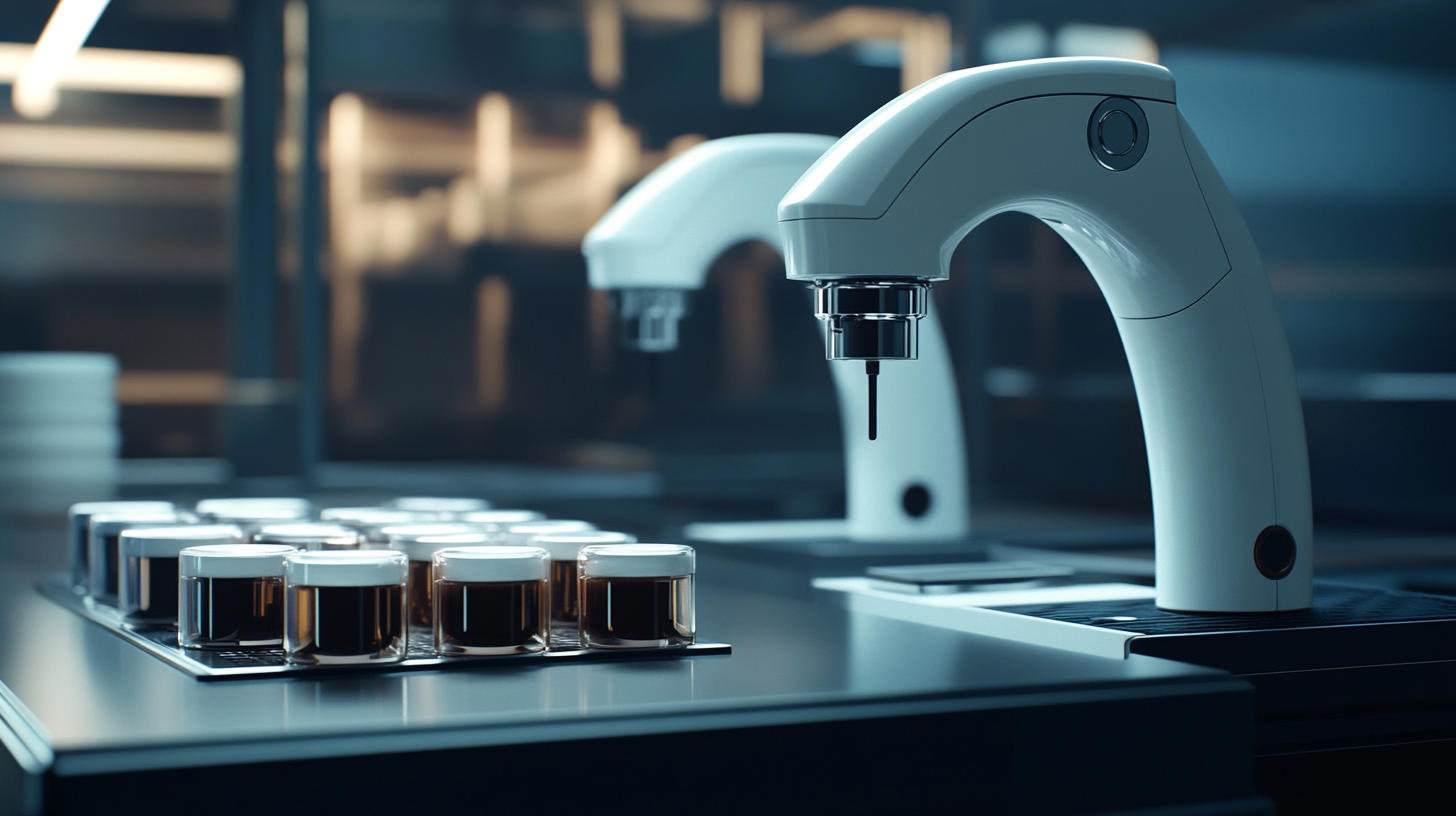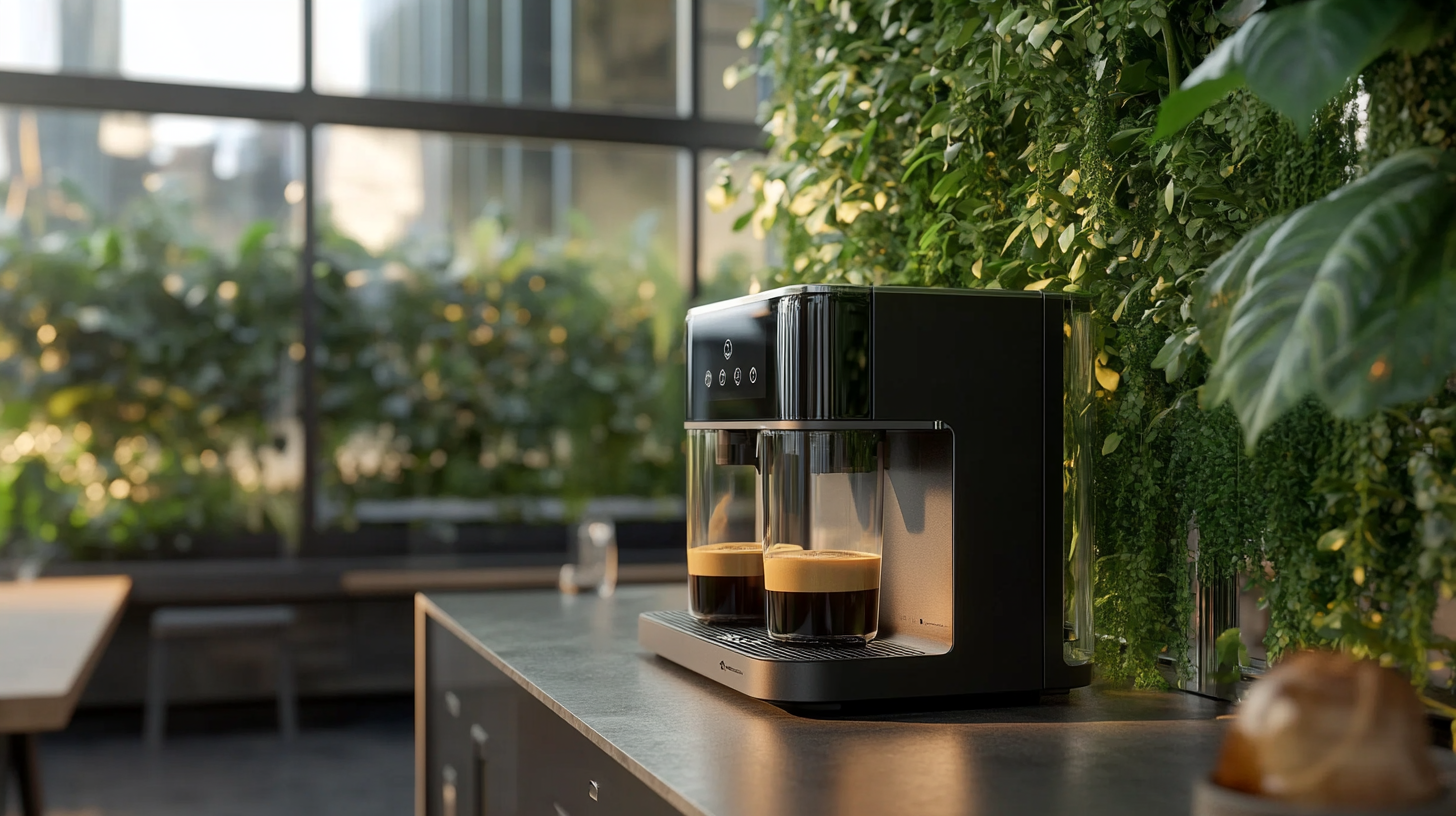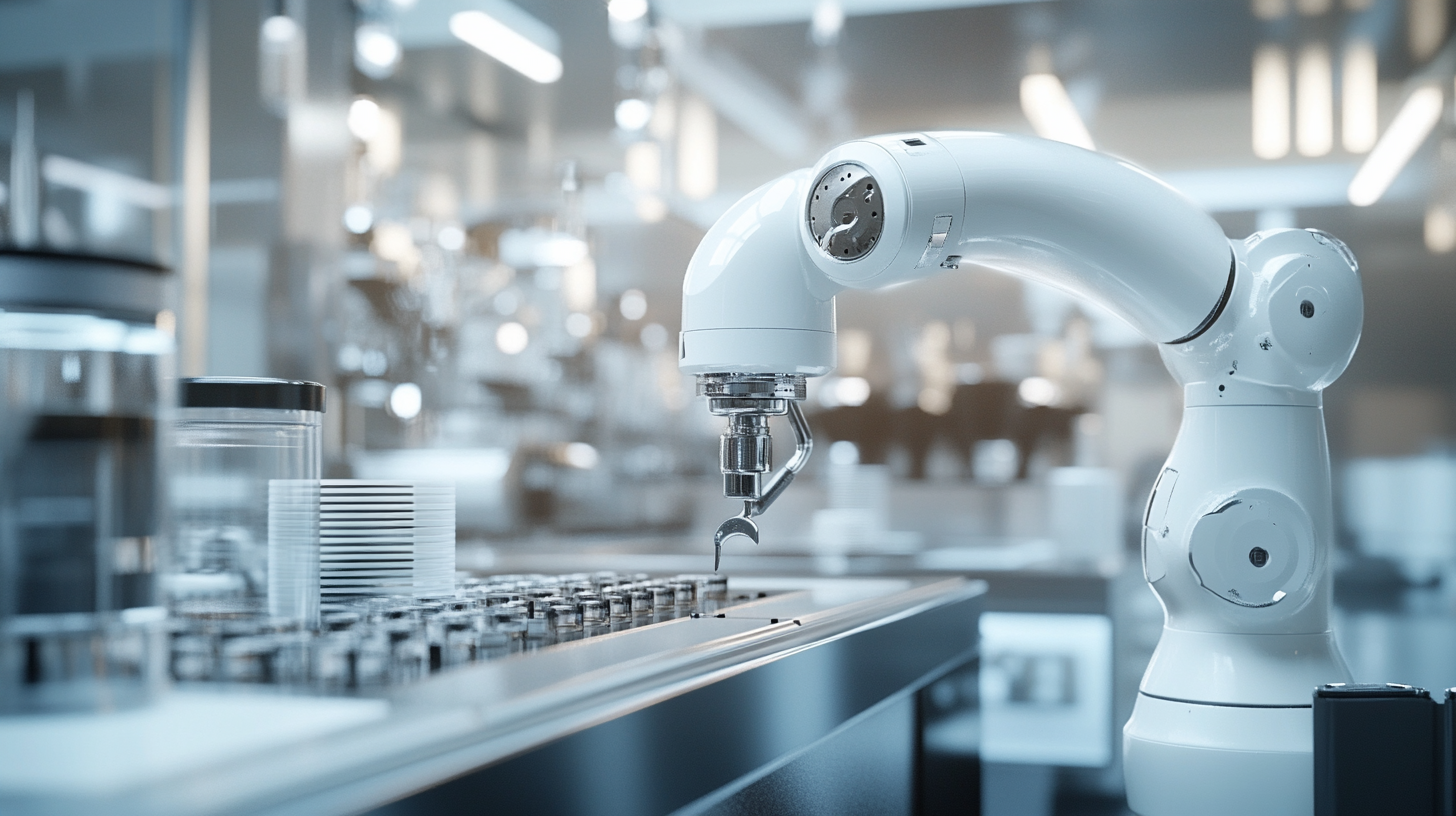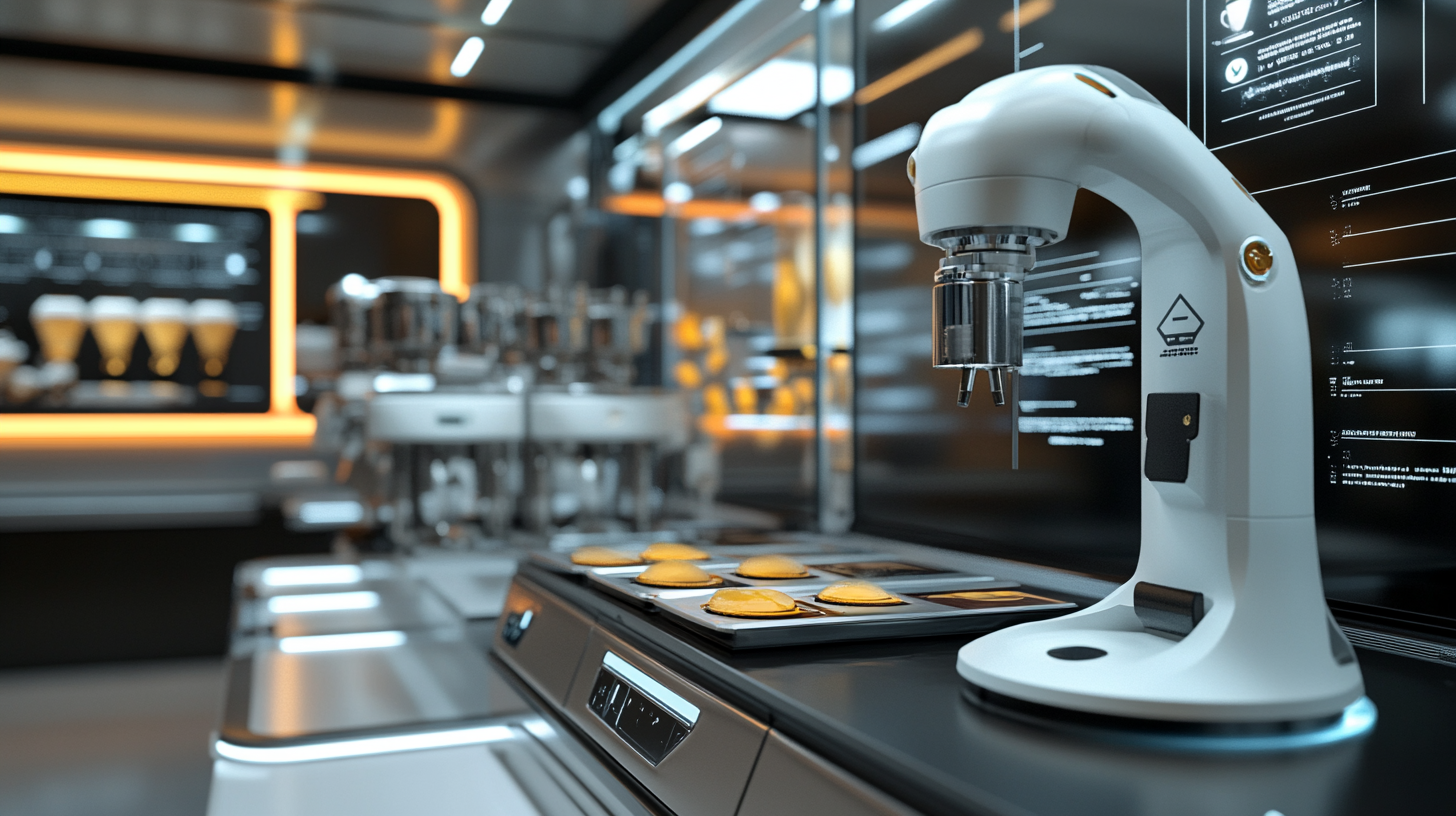This change in the present profile of the coffee industry continues to be automated as the most important defining trend for the future of this industry. According to a new report from the International Coffee Organization, global coffee consumption is expected to grow from 155.8 million 60-kilogram bags to 179.3 million during the five-year period from 2020 to 2025, an ever-increasing demand that will require more efficient production. It thus presses upon coffee producers and sellers to find new ways of working, most prominently the use of coffee robot machines that can simplify tasks, ensure consistency, and lessen the cost of labor even in the presence of high-quality service.
In 2025, industry experts are confident that the adoption of coffee robot machines will drive massive economies for international clients and keep them competitive in a increasingly convoluted market. As stated by a report of Grand View Research, the global market for coffee machines is expected to grow by 4.5% CAGR during the period of 2023 to 2030 due to modernization in automation and smart technology. With the advancement in technologies to make these coffee robot machines more intelligent and user friendly, these machines will increasingly be actors in satisfying the customers changing preferences and the operating challenges faced by the enterprises in the coffee sector.

The future of coffee production is in for a tremendous overhaul due mainly to the influx of robotics and automation technology. As the demand for coffee soars across the globe, producers are looking for robotic innovations that could enhance efficiency, hold quality consistent, and increase the quality of their output. From planting, to harvesting, and processing, robots are becoming indispensable to the coffee supply chain. Robotic systems are being developed for the coffee plantations to help in the labor-intensive harvesting process. These novel machines come fitted with precision sensors and machine learning algorithms that allow them to detect ripe coffee cherries with the least damage possible to the plants. With unlimited working hours, these robotic harvesters not only maximize the yield but also contribute to cutting production costs, especially in areas where labor shortages might prevail. As technology progresses, further evolution will witness even more advanced systems with the ability to adapt to all terrain and cultivation types. Robotics are also key to the processing phase, where speed and consistency are of the essence. Automated processing plants will handle everything from sorting to washing, drying, and packing with limited human intervention. Through artificial intelligence, smart machinery can monitor and correct whatever processes are being done in real time to assure the strictest quality of each coffee batch that goes out the door. Thus, these innovations will place the producers ahead in terms of quantity and competiveness in the global market. On the near horizon for the year 2025 is a scenario where full-fledged robotics in coffee production can lower all setting standards and open enormous avenues for farmers and producers all over the globe. In the long term, acceptance of this advancement in technology will not only help to resolve current issues but will also build an environment for a sustainably operated and efficient coffee industry.

Broadening this up, the coffee industry adopts sustainable practices as just being a microcosm of green innovations due to the sustainable advancement as one among trees in greener devotion. The coffee automation trends pointed toward sustainable technologies enhancing high efficiency as well as low environmental impact by 2025. This is the trendsetter of the movement entering various industries, showing how sustainable practices are quickly becoming today's market tenets.
Most recent participation in the significant expos has strongly demonstrated this potentiality for innovation through eco-greener friendly solution. A particular recent trade show is an example; companies there showcased how coffee grounds can be reused in products including footwear to packaging products. Further, this kind of way will lead to a bright prospect where waste can be turned into useful products and contributed directly to the coffee sector as part of the whole world's sustainability. On the other hand, the advancing automation technology makes it easier and more efficient for business applications to adopt seamless adaptation into sustainable practices, thus running operation significantly while being environment friendly.
Automated systems specifically designed for coffee production will further bring a more sustainable way of manufacturing. They need to minimize waste and energy consumption through resource optimization. Emerging new innovations offer different options for global buyers that incorporate high technology and sustainability to assure that the future of coffee is not just great-tasting but also kind to the planet. As we approach 2025, the combination of sustainability and automation will redefine the standard by which global coffee buyers measure industry excellence.

The transformation of the coffee industry in the next few years will be quite significant, depending upon the integration of Internet of Things (IoT) and data analytics. The emergence of smart coffee supply chains as a key innovation for global buyers engenders real-time tracking and analysis of coffee production and distribution. Together with IoT devices, growers can monitor crop health, soil conditions, and climate variables that can help them make decisions that ensure optimal yield quality and sustainability. Therefore, it is this technology that enhances productivity and encourages environmentally conscious grounds for coffee farming.
Along with IoT, data analytics play a key role in the automation which empowers stakeholders to derive actionable insights from the huge volumes of data collected from the entire supply chain: from knowledge regarding the preferences of consumers to predicting demand variability, enterprises can calibrate their operations for efficiency. In practice, improvement in the roasting process would be based on real-time feedback received on flavor profiles and market trends so that the products can really meet the desires of coffee lovers. In addition, suppliers can better allocate their resources toward forecasting inventory requirements, thereby reducing waste and lowering costs, furthering the goals of a sustainable business model.
Increased buyer demand for supply chain transparency and ethical sourcing is matched by these technological developments built to facilitate accountability and traceability. IoT and data analytic systems not only provide seamless operations but also give the consumers confidence to make informed purchasing decisions regarding the kind of coffee they buy. Looking ahead to the year 2025, it becomes clear that engaging in smart supply chains will be central for all stakeholders wishing to remain competitive in the fast-evolving world's market needs.

As the industry progresses, the influence of automation on coffee products has received a lot of attention among global buyers. The market size is expected to grow rapidly due to robotic coffee shops, with an estimated value of $1 billion by 2032. It will be driven mostly through consumer segments such as coffee lovers and casual drinkers who want convenience and quality in their drinks.
Redefining the way in which coffee is prepared and consumed today are self-service kiosks, smart brewing systems, and automation technologies. Consumer customisation goes beyond efficiency in the brewing process. Research from a recent study shows that 67 percent of consumers are more inclined to invest in automated coffee services that allow personalized flavor profiles and creative beverage mixes. In light of this, brands ought to take a sooner rather than later position for investments in technologies that will lift the consumer experience while not compromising with the quality end product.
Moreover, sustainability and health-related ingredients influence trends in coffee consumption. As automation becomes more of the order for the day, it will also likely make it easier to introduce healthier options like plant-based milk and organic beans-for-the-health-conscious without compromising the quality of wellness. Experts have even further predicted that health and technology trends would change consumer preferences and reorient the geographical arena of coffee across the world in the future.
The coffee automation market is changing rapidly, powered by technological advances and the global purchasers' increasing demand for efficiency and quality. As per the latest MarketsandMarkets report, it is anticipated that the coffee automation market will grow from USD 4.6 billion in 2020 to USD 7.9 billion by 2025, growing at a CAGR of 11.5%. This increase is primarily due to the booming specialty coffee shop segment and the ongoing convenience trend, which become important in our fast-paced lives.
The market is dominated by big players like JURA, Faema, and Bravilor Bonamat, which avail themselves of cutting-edge solutions for commercial and residential markets alike. From the point of view of IoT-influenced advances, such functionalities allow businesses to develop smart coffee machines, which enables consumers to control brewing from their phones, track inventory in real time, and receive maintenance alerts. These facilities enhance user experience while promoting operational efficiency on the part of retailers.
Furthermore, sustainability is becoming a fundamental tenet of coffee automation trends. According to reports from the Specialty Coffee Association, consumers are increasingly favoring brands that show environmental responsibility. Consequently, the manufacturers are looking into the usage of eco-friendly materials and energy-efficient technologies that will reduce their carbon footprint. This move towards sustainability goes hand in hand with consumer conscience and is bound to impact future innovations that may considerably alter the coffee automation landscape.